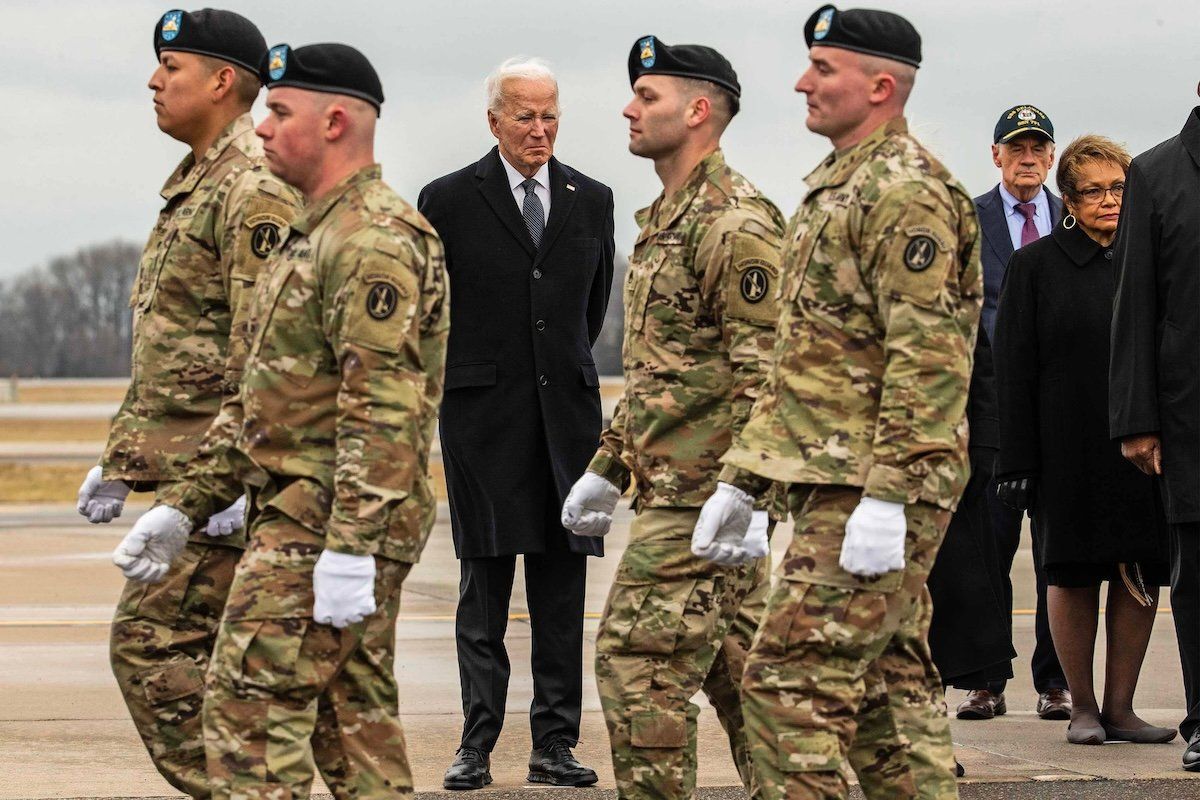Nearly a week after a drone attack killed three American service members at a small US base in Jordan, the US responded late Friday by launching strikes against more than 85 targets in Syria and Iraq. The Pentagon blames the Iran-backed Islamic Resistance in Iraq for the deadly drone attack.
The strikes hit command and intel centers and storage facilities affiliated with the Quds Force, a unit of Iran’s Islamic Revolutionary Guard Corps, and local Iran-supported militias.
Tehran condemned the US strikes, calling them a “strategic error.” Baghdad said the attacks killed at least 16 people, including civilians. Syria, meanwhile, criticized the US and said the attacks would “fuel conflict in the Middle East in a very dangerous way.” The Syrian Observatory for Human Rights, a Britain-based watchdog, said the strikes in Syria had killed 23 pro-Iran fighters, but no civilians.
The strikes came hours after President Joe Biden, first lady Dr. Jill Biden, and US Defense Sec. Lloyd Austin attended the return of the remains of the three slain US soldiers — Sgt. Breonna Alexsondria Moffett, Sgt. William Jerome Rivers, and Sgt. Kennedy Ladon Sanders — at Dover Air Force Base on Friday.
Biden had threatened to deliver a “tiered response” over time, so these strikes are expected to be just the first salvo of a broader campaign. We’ll be watching for Washington's next moves — and for any signs of escalation in the form of responses from Iran, Iraq, or Syria.
